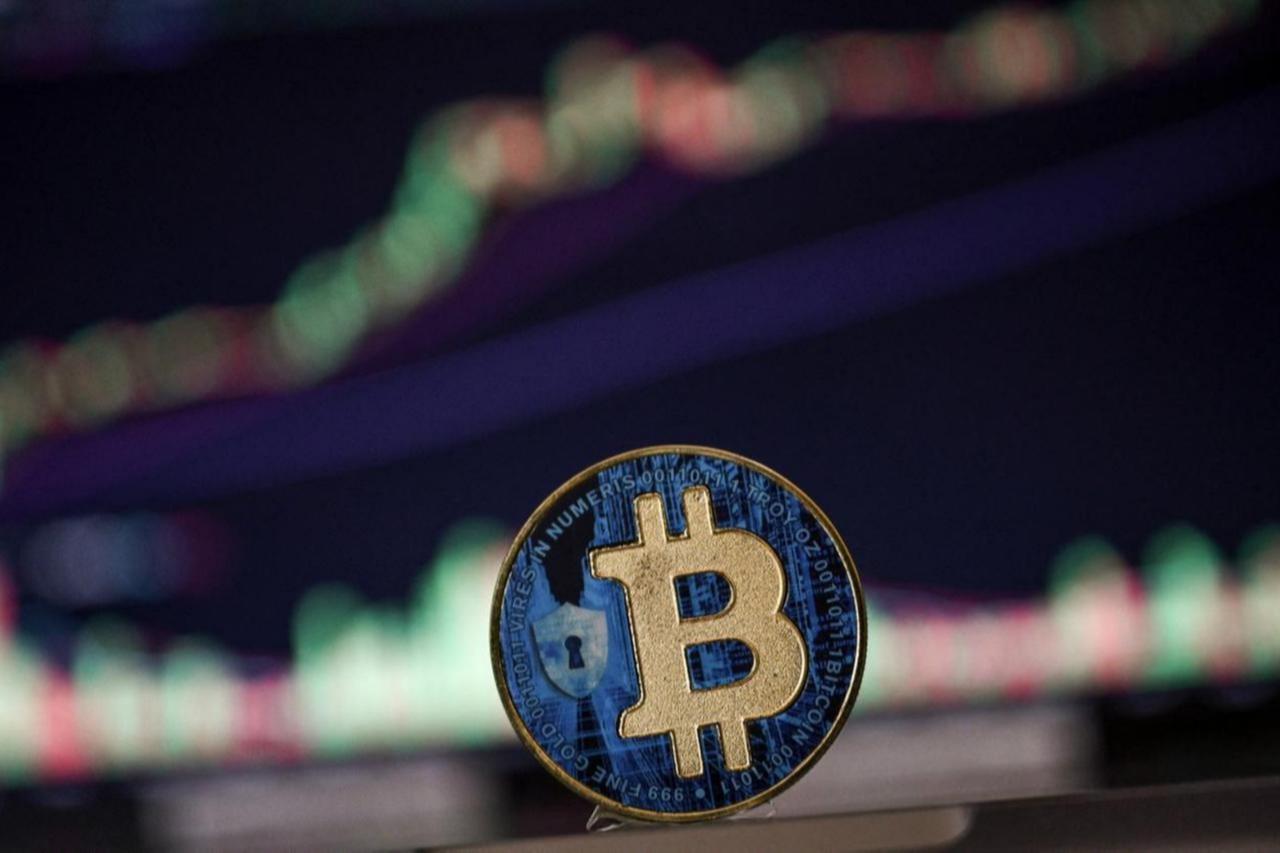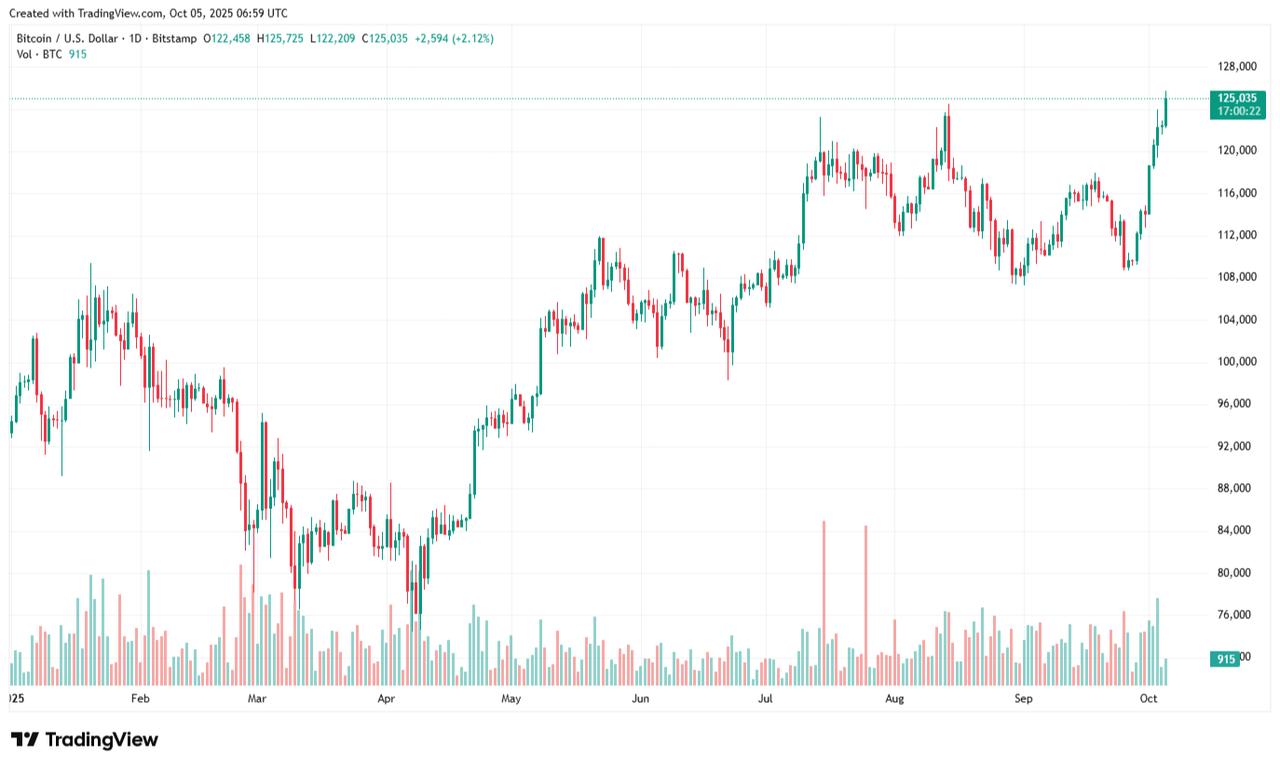
Bitcoin climbed to an unprecedented $125,689 in Asian trading on Sunday, rising 2% and surpassing its previous record of $124,514 set on Aug. 14.
The digital asset, which remains the largest cryptocurrency by market value, has now gained over 33% since the beginning of 2025.
Bitcoin’s market capitalization reached $2.48 trillion during the latest rally, contributing to a total global cryptocurrency market capitalization of $4.26 trillion.
Other digital assets also advanced, with Ethereum trading at $4,584.63 and XRP at $3.04.
The recent uptick was mainly supported by the ongoing U.S. government shutdown, which began last Wednesday and boosted demand for safe-haven assets and cryptocurrencies amid rising uncertainty.
Bloomberg described the current investment pattern as part of a "debasement trade," in which investors turn to assets such as Bitcoin and gold to guard against potential currency depreciation, while the U.S. Dollar Index remained weak, falling to 97.711.
The rally in cryptocurrencies has coincided with record highs in U.S. equities, with the broader S&P 500 index reaching 6,749.21 during the Friday session, driven by large artificial intelligence deals and partnerships.
Gold also strengthened, moving toward a new all-time high near the $3,900 mark, and was on track for a seventh consecutive weekly gain, supported by central bank purchases, easing U.S. interest rates, and persistent inflation concerns.

The rally has been driven by strong inflows into Bitcoin-linked exchange-traded funds (ETFs), now a key channel for both institutional and retail investors.
CoinGlass data showed $985.1 million poured into these funds on Oct. 3 alone, pushing total global inflows since September 29 above $3.23 billion.
Bitcoin’s year-long upward trajectory has also been attributed to policy shifts in Washington under U.S. President Donald Trump.
His administration has actively promoted digital assets, in stark contrast to the cautious stance taken by his predecessor, Joe Biden.
In July, the U.S. House of Representatives passed three major cryptocurrency bills that established a more favorable legislative environment for the industry.
Market participants note that this shift has encouraged public companies to adopt Bitcoin as part of their treasury strategies, with high-profile figures such as Michael Saylor leading efforts to normalize corporate Bitcoin reserves.